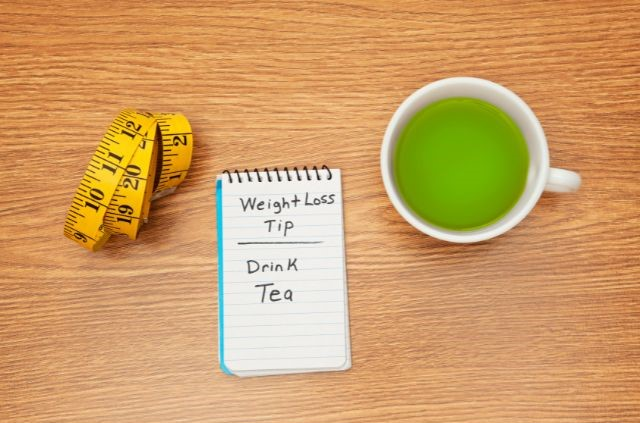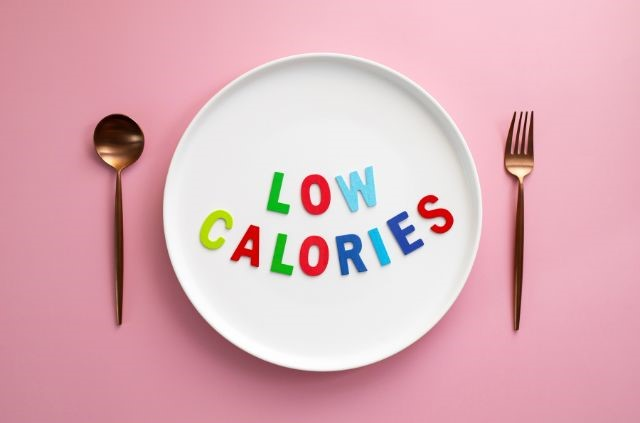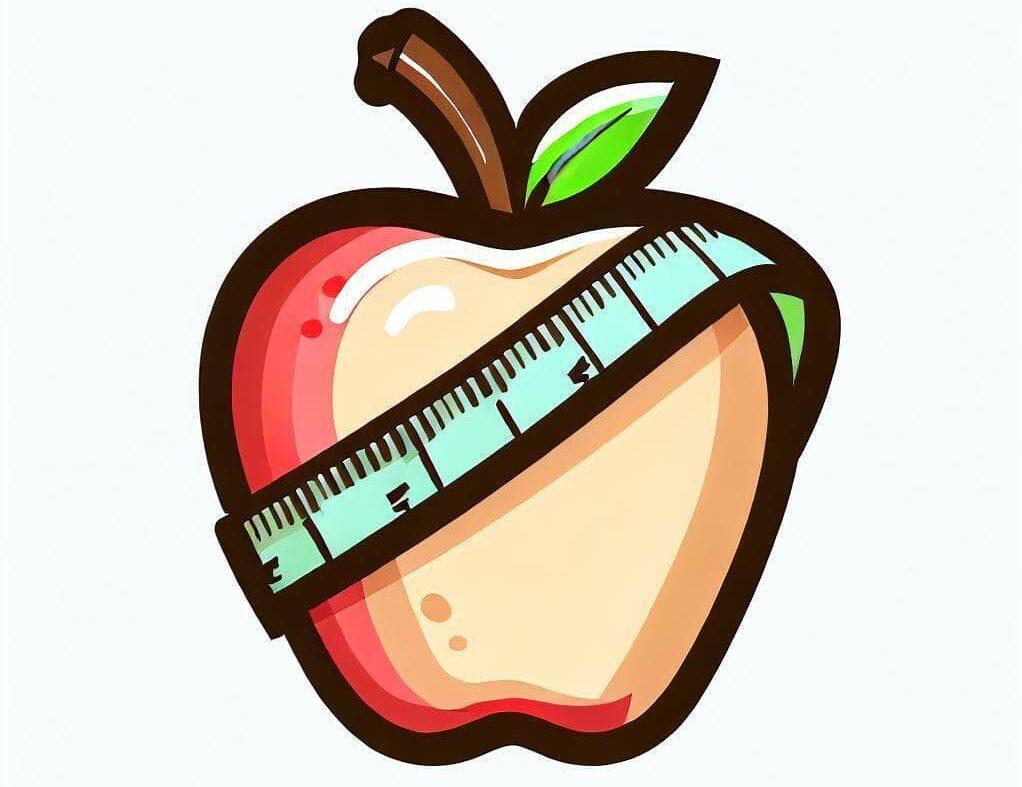Is Chai Tea Good for Weight Loss?
This post may contain affiliate links which means I may receive a commission for purchases made through links at no extra cost to you. See my disclosure policy for more information.

Have you ever wondered, “Is chai tea good for weight loss?” The brief answer is – yes, chai tea could indeed be a supportive ally in your weight loss journey.
The primary reason lies in its unique blend of black tea and spices, which contain beneficial compounds that may enhance metabolism, support digestion, and help control appetite.
But there’s more to this aromatic brew than meets the eye. Let’s delve deeper into the science behind why chai tea is good for weight loss and how you can maximize these benefits.
Nutritional Value of Chai Tea
As per the database on Nutritionix, 1 cup of chair tea contains the following nutrients.
Serving Size: 1 cup (238 g)
Calories: 4.9
Protein: 0.1 g
Fat: 0.1 g
Carbohydrates: 1.4 g
Fiber: 0.3 g
Potential Benefits Of Drinking Chai Tea For Weight Loss

Chai tea benefits make it a good addition to a weight loss regimen. Let’s delve deeper into why you might want to consider sipping this aromatic brew as part of your weight loss journey.
Low in Calories

Provided it’s not loaded with added sugars, chai teas are a low-calorie beverage.
It’s a flavorful and satisfying option for those times when you want something more exciting than water but don’t want to consume extra calories that could interfere with your weight loss efforts.
Metabolism Booster

Chai tea contains caffeine, which has been shown to give your metabolism a slight boost.
While this effect alone might not lead to significant weight loss, when combined with a balanced diet and regular exercise, it can support your overall weight loss efforts.
Appetite Control

Some of the spices in chai tea, such as ginger and black pepper, have been linked to appetite control.
These spices might help you feel full and satisfied, which can reduce overeating and help you maintain a calorie deficit – the key to losing weight.
Blood Sugar Regulation

Certain spices in chai tea, particularly cinnamon, have been researched for their potential role in helping to regulate blood sugar levels.
Better blood sugar control can help prevent energy crashes and intense cravings, making it easier to stick to your healthy eating plan.
Rich in Antioxidants

Chai tea is rich in antioxidants, particularly those found in black tea and the various spices used.
Antioxidants are essential for overall health, but they may also support weight loss by reducing inflammation in the body, which can otherwise interfere with weight management.
Supports Digestion

The spices in chai tea are also well-known for their digestive benefits.
A healthy gut is important for weight loss as it ensures that nutrients are properly absorbed and waste is effectively eliminated.
For instance, ginger and cardamom are known to aid digestion and alleviate issues like bloating and indigestion.
Hydrating Beverage

While it’s not a substitute for water, chai tea does contribute to your daily fluid intake.
Staying well-hydrated is crucial for overall health and weight loss, as it supports all your body’s processes, including metabolism.
Also read: Best Time to Drink Kombucha for Weight Loss
Tips for Incorporating Chai Tea into a Weight Loss Diet
Incorporating chai tea into your weight loss plan requires more than just increasing your consumption of this flavorful beverage.
To fully harness the benefits of chai tea for weight loss, I have assembled a set of practical tips that blend science with common sense.
Moderation is Key
Although the black tea and spices in chai provide numerous health benefits, drinking chai tea excessively can lead to excessive caffeine intake.
Caffeine, while a helpful stimulant that can aid in boosting metabolism and increasing alertness, can have potential side effects when consumed in large quantities. These can include restlessness, insomnia, and increased heart rate.
Furthermore, the benefits of chai tea cannot replace the nutritional diversity necessary for overall health and well-being.
Thus, balance and moderation in your chai tea consumption, like in all aspects of a healthy diet, are essential.
Watch the Added Sugar
While traditional chai tea recipes often include added sugar to complement the robust flavors, consuming too much sugar can undermine your weight loss efforts.
Excessive sugar consumption can lead to increased calorie intake and potential weight gain, along with other health issues like blood sugar imbalances and an increased risk of heart disease.
When brewing your chai tea, consider using less sugar or opting for healthier sweeteners, like stevia.
Pair it with a Balanced Diet and Regular Exercise
Drinking chai tea is most effective when paired with a balanced, nutritious diet and a regular exercise routine.
Incorporating a variety of fruits, vegetables, lean proteins, and whole grains into your diet ensures your body receives a wide spectrum of essential nutrients.
Regular physical activity, whether mild, moderate, or intense, supports weight loss by increasing calorie expenditure and promoting muscle growth.
Choose Whole Ingredients
When preparing chai tea at home, selecting whole spices and loose-leaf black tea can maximize the health benefits you receive.
Pre-made chai tea mixes or bags can offer convenience but may contain lower-quality ingredients and fewer beneficial compounds.
Whole spices retain their beneficial compounds more effectively than their ground counterparts.
Similarly, loose-leaf teas tend to contain more health-boosting polyphenols and other beneficial compounds than the often more processed tea found in tea bags.
Timing Matters
The timing of your chai tea consumption can also impact its effectiveness for weight loss.
Consuming chai tea in the morning can help kickstart your metabolism for the day, thanks to its caffeine content.
Having a cup of chai tea before a meal can potentially aid in appetite control, helping to prevent overeating by promoting feelings of fullness, as suggested by some research.
Hydration is Crucial
Chai tea does contribute to your daily fluid intake, but it should not replace plain water.
Proper hydration is crucial for overall health and can aid in weight loss by promoting feelings of fullness and helping with calorie control.
Be sure to drink enough water throughout the day, in addition to your tea consumption.
Also read: Best Time to Drink Hibiscus Tea for Weight Loss
Pay Attention to Your Body
Everyone’s body reacts differently to various foods and beverages. Pay attention to how your body responds to chai tea.
If you notice any discomfort or adverse effects, such as sleep disturbances from its caffeine content, it might be best to limit your consumption or consider a decaffeinated version.
Bottomline
Drinking chai could indeed be beneficial for weight loss, thanks to its combination of black tea and healthful spices.
But remember, it’s just one piece of the puzzle – maintaining a balanced diet and regular exercise are the main keys to successful weight loss.
Also read: Best Energy Drink for Weight Loss
FAQ
Here are some more answers regarding drinking chai tea and weight loss
Does chai tea help lose belly fat?
While chai tea cannot specifically target belly fat, it may support overall weight loss, which also includes the reduction of belly fat.
The various components in chai tea, such as caffeine and certain spices like cinnamon and ginger, have been linked to boosting metabolism and aiding in fat burning.
However, these effects are likely to be modest and should be combined with a balanced diet and regular physical activity for the best results.
Remember, there’s no such thing as a magic drink that can directly burn belly fat.
Is it OK to drink chai for weight loss?
Yes, it is OK to drink chai tea for weight loss, as long as it is consumed in moderation and as part of a balanced diet and active lifestyle.
Chai tea has several components that may aid in weight loss, such as antioxidants, spices that help in digestion, and caffeine that may boost metabolism.
But do keep an eye on the added sugars as they can increase the overall calorie content of your chai tea, which might work against your weight loss efforts.
How to drink chai tea for weight loss?
Here are a few tips to drink chai tea for weight loss:
Avoid adding a lot of sugar or other sweeteners. They increase the calorie content and can counteract the potential weight loss benefits.
Drink chai tea in moderation. Overconsumption can lead to excessive caffeine intake.
Use whole spices and high-quality black tea when brewing your chai tea to maximize its health benefits.
Pair your chai tea with a healthy foods such as Caprese salad or Sourdough bread and stay active throughout the day.
Can I drink chai tea every day?
Yes, you can drink chai tea every day, as long as you consume it in moderation and keep an eye on caffeine and sugar intake.
However, if you have certain health conditions, like high blood pressure or a sensitivity to caffeine, or if you’re pregnant, you may want to limit your chai tea consumption.
As always, it’s a good idea to consult a healthcare professional if you have any specific concerns.
How much chai tea should you drink in a day?
The amount of chai tea you should drink in a day depends on various factors, including your tolerance to caffeine and your overall health status.
However, a common recommendation is to have no more than 3 cups of chai tea per day.
This post may contain affiliate links which means I may receive a commission for purchases made through links at no extra cost to you. See my disclosure policy for more information.
Rahul is a professional nutritionist certified by the International Sports Sciences Association (ISSA) and a personal trainer certified through the American Council of Exercise (ACE). He has a special interest in the science of nutrition and how it can impact the body.
